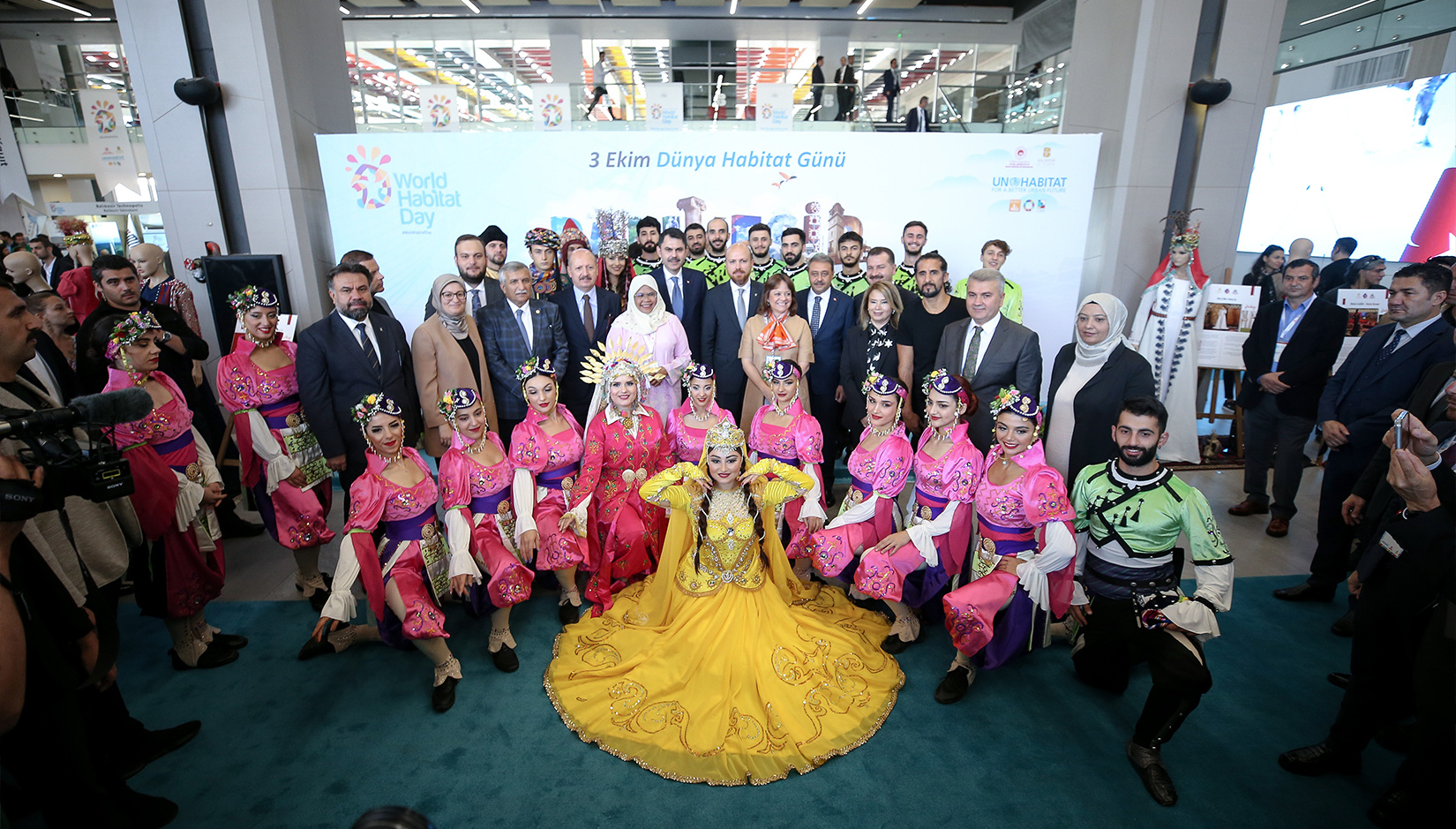

World Habitat Day activities were held in Balıkesir under the theme of “Mind the Gap. Leave No One and Place Behind.” Habitat Day activities occurred with over 200 participants from 110 countries and were broadcast live in 7 different languages in these countries.
The ”Cities and Civilization Coming Together for a More Just World” event was held on the first day of activities. Our Confederation President Necmeddin Bilal Erdoğan attended the World Habitat Day Activities organized under the theme of “Mind the Gap. Leave No One and Place Behind.”
Over 200 mayors, senior executives, and United Nations representatives from 110 countries gathered in Balıkesir for World Habitat Day. The Habitat Meeting was hosted by Balıkesir Metropolitan Municipality under the auspices of the Ministry of Environment, Urbanization and Climate Change, at which participants from all over the world talked about the studies they’ve done on housing, the most basic right of all people, and talked about the projects they’ve produced for overcoming the deficiencies experienced in regard to all settlements obtaining this right. One of the most important activities of the United Nations, Habitat Day is taking place again in Turkey, this year in Balıkesir after Habitat II had been held in Istanbul 26 years ago.
While reminding that he had been a volunteer of the United Nations (UN) Human Settlements Program (UN-Habitat) in Istanbul in 1996, World Ethnosports Confederation President Necmeddin Bilal Erdoğan said, “When I first heard about UN-Habitat, the Turkish pronunciation of the word “habitat” drew interest, but that was when we met as high school students learning and practicing English. We’ve since had the chance to meet volunteer friends from all over the world. We’ve had the opportunity to talk about the future of the world by attending many conferences and seminars.”
Erdogan noted that 26 years had passed since Habitat II in Istanbul, yet similar problems are still encountered in cities.
Expressing how he’d had the opportunity to talk about nomadic culture at the closing ceremony of the 4th World Nomad Games yesterday in the İznik District of Bursa, Erdoğan continued his speech saying:
“While we are no longer nomads, I think we should appreciate the nomadic spirit in organized events just as we appreciate the amateur spirit in professional sports by drawing a path based on the example of a sport. Yes, we have a settled life. While we no longer migrate when we want, the nomadic culture however means to exist peacefully with the environment, with the animals with whom life is shared, and with each other. Because when you encounter challenges in nomadic culture and can no longer pass this test, you pack your tent and your belongings and go to another place. When you have problems related to water resources or feeding livestock, you gather your belongings and change places again. If we can feel the nomadic culture of coexisting peacefully with those around us and with the animals with whom we share the world, even in this urbanized world, I think this will keep the amateur spirit of professional sports that is in our settled life alive.”
“ People's interest in sports occurs entirely through their own culture and history.”
Necmeddin Bilal Erdoğan emphasized that, as the World Ethnosport Confederation, they work to revive traditional sports and games.
Noting how the Confederation feels that the colorful culture of the world is connected to this multicultural structure, one that is owned and gradually disappearing, Erdoğan said:
“Western culture suppresses many areas through not just social media but all forms of media. That is why we must strive to keep our cultures alive and our streets and cities livable in the same way we struggle to sustain the existence of rare plant and animal species. That is why we need not just basketball, football, and baseball fields but also traditional sports and games in our streets and neighborhoods. I think this will increase the interest of those who avoid sports for various reasons, because people’s interest in sports occurs entirely through their own culture and history.”
